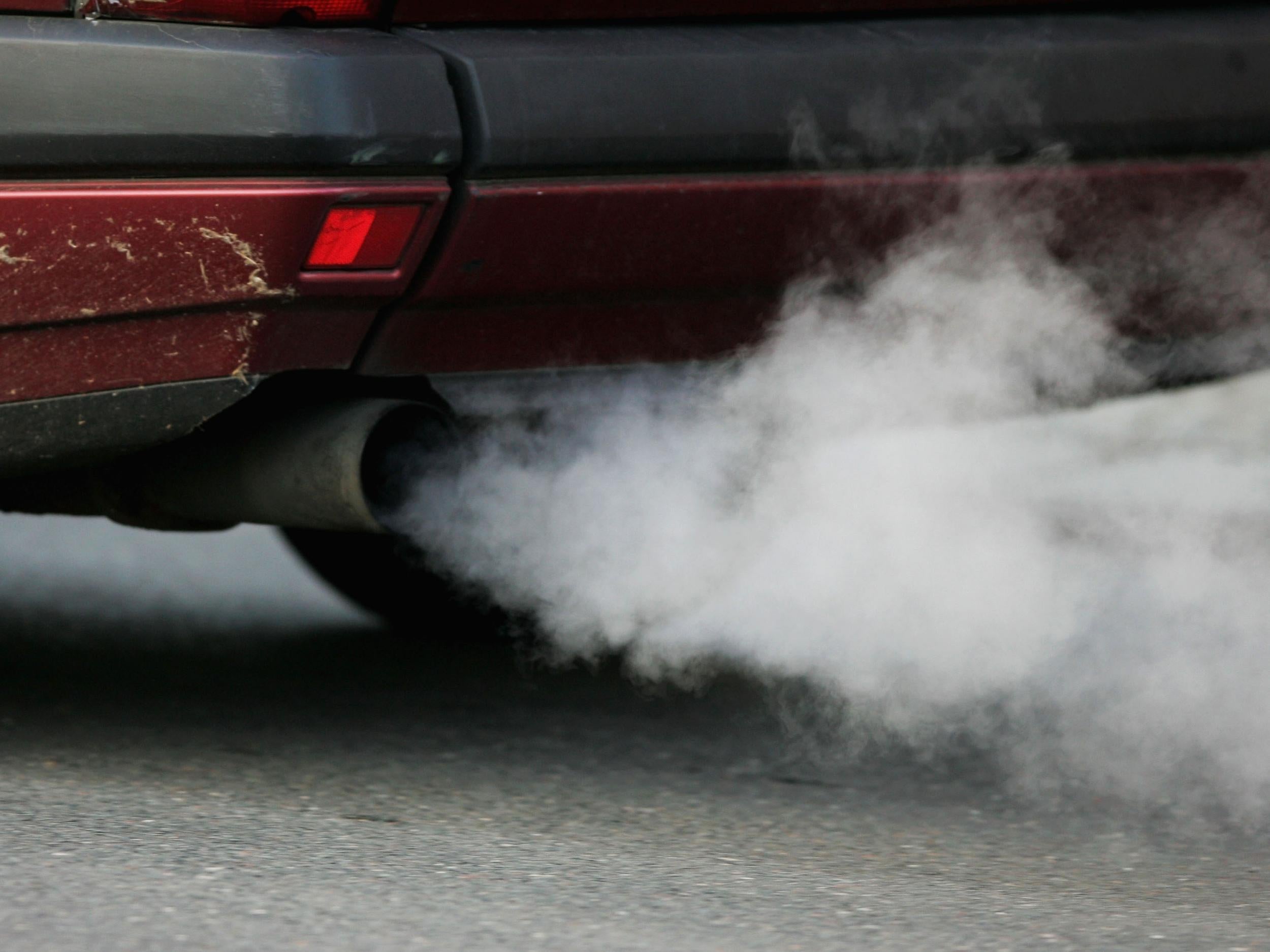Air pollution is the ‘tobacco of the 21st century’, warn experts
Bad air is the source of 'huge illness which is entirely preventable if we take the issue seriously', IPPR researcher says

Your support helps us to tell the story
From reproductive rights to climate change to Big Tech, The Independent is on the ground when the story is developing. Whether it's investigating the financials of Elon Musk's pro-Trump PAC or producing our latest documentary, 'The A Word', which shines a light on the American women fighting for reproductive rights, we know how important it is to parse out the facts from the messaging.
At such a critical moment in US history, we need reporters on the ground. Your donation allows us to keep sending journalists to speak to both sides of the story.
The Independent is trusted by Americans across the entire political spectrum. And unlike many other quality news outlets, we choose not to lock Americans out of our reporting and analysis with paywalls. We believe quality journalism should be available to everyone, paid for by those who can afford it.
Your support makes all the difference.Air pollution caused by burning fossil fuels is the “tobacco of the 21st century”, an expert has warned after a report found some cities in northern England were breaching legal safety limits by up to 150 per cent.
It is estimated that the air we breathe causes about 40,000 premature deaths a year in Britain, mainly affecting children, elderly people and those with respiratory conditions.
The report, by the Institute for Public Policy Research North think tank, noted that all but two of 11 air quality reporting zones in the North exceeded legal limits for nitrogen dioxide, according to the Government’s own figures.
Some areas, including Merseyside and Teesside, were up to 150 per cent above the legal limit for the pollutant, which inflames the lining of the lung and reduces immunity to infections such as bronchitis.
Within the next few weeks, the Department for Environment, Food and Rural Affairs (Defra) is expected to publish its third attempt at an air quality plan designed to bring pollution to within legal safety limits.
Its previous attempts have been widely regarded as half-hearted at best with environmental group ClientEarth twice winning court orders forcing Ministers to produce a more effective plan.
Darren Baxter, a research with IPPR North, compared the debate over what to do about air pollution to the realisation that smoking was harmful to health about 50 years ago.
“This is the tobacco of the 21st century and every single preventable death is a failure of government action,” he said.
“Michael Gove [the Environment Secretary] must get a grip on this crisis which is killing literally thousands of children and adults a year.
“This is a huge illness which is entirely preventable if we take the issue seriously and take the sort of big actions that governments took on policy for smoking in the 1960s onwards when the public health effects became clear.
“So for this it means clean air zones, phasing out diesel and huge expansion in electric cars.”
Mr Baxter said that “too often” the focus of concern about air pollution had been on London.
“But the reality is that it’s poisoning thousands in our regional cities too,” he said.
“Michael Gove must show that the Government is not prepared to sit on its hands while up to 40,000 people are killed every year from dirty air.
“We need to see radical plans to ditch diesel, introduce incentives for electric cars and bring in Clean Air Zones in our major cities.”
The report called for an “explicit pledge” to phase out diesel cars and “formally investigate even more ambitious targets” after the publication of the Air Quality Plan.
A network of new clean air zones should be created to cover “all major urban areas in the UK”.
“The potential socio-economic and environmental gains from the realisation of a cleaner, more efficient transport system are enormous,” the report said.
But it warned the UK risked slipping behind other countries that are embracing cleaner forms of transport.
“There could be much to learn from abroad; other countries are beginning to overtake the UK in ushering in a new mobility system. Germany, in particular, is undergoing an explicit mobility transition (Verkehrswende); the UK could and should do the same,” the report said.
A Defra spokesperson said: “We are firmly committed to improving the UK’s air quality and cutting harmful emissions.
“That's why we have committed more than £2bn since 2011 to increase the uptake of ultra-low emissions vehicles and support greener transport schemes, and set out how we will improve air quality through a new programme of Clean Air Zones.”
Join our commenting forum
Join thought-provoking conversations, follow other Independent readers and see their replies
Comments